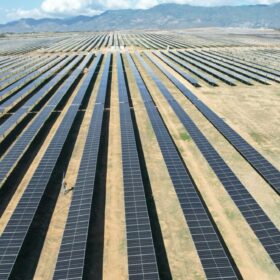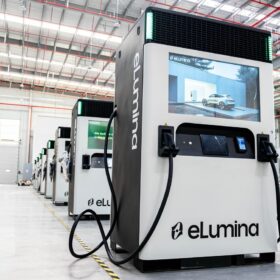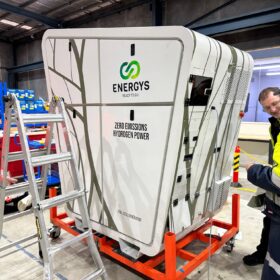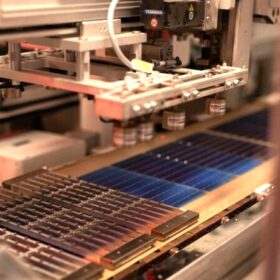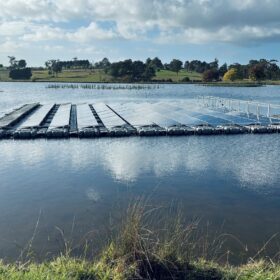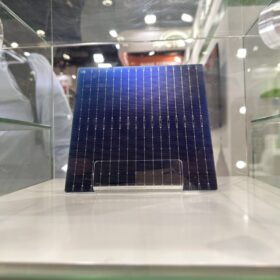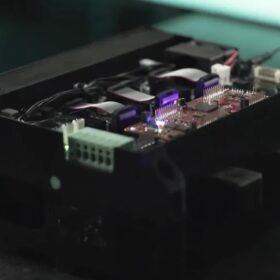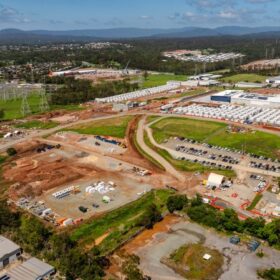Bifacial PV, single-axis tracking produces cheapest electricity, says IEA-PVPS
The IEA Photovoltaic Power Systems Programme’s (IEA-PVPS) latest factsheet covers bifacial PV modules and advanced tracking systems. It says a combination of bifacial modules with single-axis tracking could increase energy output by up to 35%.
Australia’s first community lithium battery and EV charger factory opening soon
A $20 million community lithium battery and electric vehicle charger manufacturing facility, developed by Australian company Elumina, is near ready to begin production on Queensland’s Gold Coast.
UNSW researchers eye redesigned panel as part of recycling plans
Researchers at the University of New South Wales will look to develop a redesigned PV panel that allows for easier recycling having secured $5 million in federal government funding to help transform Australia’s solar panel recycling industry.
TrendForce says 210 mm module shipments surpassed 260 GW in Q1
Market intelligence platform TrendForce says 210 mm n-type technology is “set to spearhead a new industrial revolution.” It expects 210mm modules to account for 78.29% of the large-format module market this year, increasing to 82.51% by 2027.
Telco project replaces diesel generators at remote towers with hydrogen energy
A Victorian manufactured, 10 kW renewable hydrogen generator has been installed 120 km east of Melbourne, as part of a pilot project to provide backup to telecommunications towers disabled by outages.
Buildings as renewable energy hubs in clear view of smart window company
A Western Australian smart window technology manufacturer has secured a repeat order from the USA hot on the heels of its role in Australia’s first commercial building installation in Victoria.
Future Made in Australia Bill paves way to renewable energy superpower goals
The federal treasurer Jim Chalmers has presented the Future Made in Australia Bill to parliament taking the next step to bringing into law pathways to help make Australia a renewable energy superpower.
Benefits of floating solar on display for agribusiness sector in Victoria
A 50 kW floating solar system deployed on a lake at Lardner Park in southeast Victoria is being used to demonstrate the benefits of the technology for Australia’s agribusiness sector, including its ability to utilise water bodies instead of pastures that contribute directly to farming profit.
All solar cell efficiencies at a glance – updated
The research group led by University of New South Wales Scientia Professor Martin Green has published Version 64 of the solar cell efficiency tables. There are 19 new results reported in the new version.
CSIRO partners with Google to prototype grid-forming inverters
Scientists from Australia’s national science agency and the electricity research and development arm of global tech giant Google have developed a new ‘smart’ inverter they claim is almost twice as fast and about 50% more efficient than existing commercial inverters.
